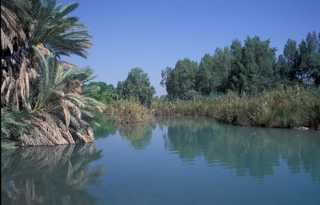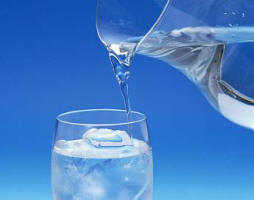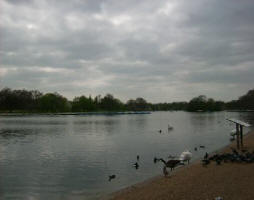 Palestine Needs Fresh Water Now
Palestine Needs Fresh Water Now
In late September 1995, the PLO and Israel signed an Interim Agreement on their future status and relationships. That agreement envisaged further Permanent Status negotiations leading to the establishment of an independent Palestinian State within five years. Reaching this point required resolution of all key issues such as borders and security, refugees, Jerusalem, Israeli settlements, and fresh water, in addition to certain other topics such as trade and agriculture.
Nearly two decades later, the promise of self-determination and statehood remains as elusive as ever, despite the widely recognized success of Palestinian state-building efforts. No agreement was reached at either the Camp David meetings of July 2000, or the Annapolis Round of negotiations in 2007-2008, while international efforts to convince Israel to end more than four decades of military occupation have borne little fruit. The result is that Palestinians remain an occupied people, and the Interim Agreement of 1995 remains in force.
The humanitarian challenges Palestinians face grow ever more severe; prospects for substantive negotiations given the current climate look dim, and the two-state solution appears ever more threatened as Israel continues to expand its network of illegal settlements in violation of international law.
In terms of water, the situation is particularly difficult for Palestinians. Through a range of historical interventions, Israel controls the bulk of the fresh water resources in the Occupied Palestinian Territories. It exploits most of those resources for exclusive Israeli use, and allocates a small percentage for Palestinian use. Under this system of unfair allocations, 9,500 Israeli settlers in the lower Jordan River valley use the equivalent of one third the entire volume of water Israel makes available to all 2.6 million Palestinians living in the West Bank.
The situation in Gaza is even more extreme, with a further 1.6 million Palestinians having access only to the very limited underground aquifer within Gaza, which has resulted in over-abstraction and contamination of the drinking supply. The water quality in the aquifer within Gaza is getting worse over time, with only 5 per cent of the water safe to drink, and various experts have predicted that it will become unusable within a few years.
When taken together, the average availability of fresh water at the present time to an Israeli is almost five times more than that to a Palestinian. Even this comparison includes the over-abstraction in Gaza -- which if stopped, would render the imbalance between the populations substantially greater. To cope with water shortages, Palestinians are forced to purchase additional water from Israel to meet the minimum needs of Palestinian communities, some of whom survive on as little as 10 to 15 litres of water per capita per day (compared with the average of 300 litres per capita per day consumed by Israelis for domestic use alone). Today, Palestinians purchase just over 50 million cubic metres a year from Israel at great cost. Independent commentators have described the scenario in Gaza as a 'humanitarian crisis', and the situation in the West Bank is little better.
While the present situation is clearly of very significant concern, two factors in particular threaten to create yet more problems. Firstly, population growth continues to place ever greater pressure on the available fresh water resources. The eventual return of Palestinian refugees forcibly displaced in 1948 and 1967 will further add to this demand. Secondly, predictions by various climate change experts suggest that the countries bordering the eastern and southern Mediterranean Sea will experience particularly severe warming and reduced rainfall in the future -- and there have been signs recently that this process may be underway, with dire consequences for the long-term availability of fresh water.
Customary international water law -- which applies to all countries, whether or not they have signed specific agreements -- includes a key principle relating to the "equitable and reasonable" allocation of shared fresh water resources. The Palestinian case for the resolution of the conflict on water has relied heavily on this tenet. The Palestinian side has also proposed a 'Positive Sum Outcome', where additional water supplies would be made available through a variety of interventions, and all countries in the region would benefit over time.
Unless the status quo is changed, it appears likely that the availability of fresh water will become a driver for conflict at both the national and regional level. The problem of water must not be allowed to fall off the global agenda, and the international community must intervene. It remains possible that progress relating to equitable and reasonable fresh water allocations could trigger a broader consensus for agreement on other issues also, such as occurred leading to the Peace Treaty of 1994 between Israel and Jordan. However, this can only happen if the international community focuses its efforts, and seeks a just and fair solution to end Israel's occupation.
| Contact information |
Dr. Shaddad Attili, Minister and Head of the Palestinian Water Authority
|
|---|---|
| News type | Inbrief |
| File link |
http://www.huffingtonpost.ca/dr-shaddad-attili/fresh-water-in-palestine_b_1659662.html?utm_hp_ref=fb&src=sp&comm_ref=false |
| Source of information | http://www.huffingtonpost.ca/ |
| Keyword(s) | international water law, conflict, peace |
| Subject(s) | AGRICULTURE , DRINKING WATER , DRINKING WATER AND SANITATION : COMMON PROCESSES OF PURIFICATION AND TREATMENT , ENERGY , FINANCE-ECONOMY , HEALTH - HYGIENE - PATHOGENIC MICROORGANISM , HYDRAULICS - HYDROLOGY , INFORMATION - COMPUTER SCIENCES , NATURAL MEDIUM , POLICY-WATER POLICY AND WATER MANAGEMENT , PREVENTION AND NUISANCES POLLUTION , RIGHT , RISKS AND CLIMATOLOGY , WATER DEMAND , WATER QUALITY |
| Relation | http://www.semide.net/countries/fol749974/country608613 |
| Geographical coverage | Palestine, |
| News date | 11/07/2012 |
| Working language(s) | ENGLISH |
 you are not logged in
you are not logged in





